
What influences and fuels my work? Glad you asked.
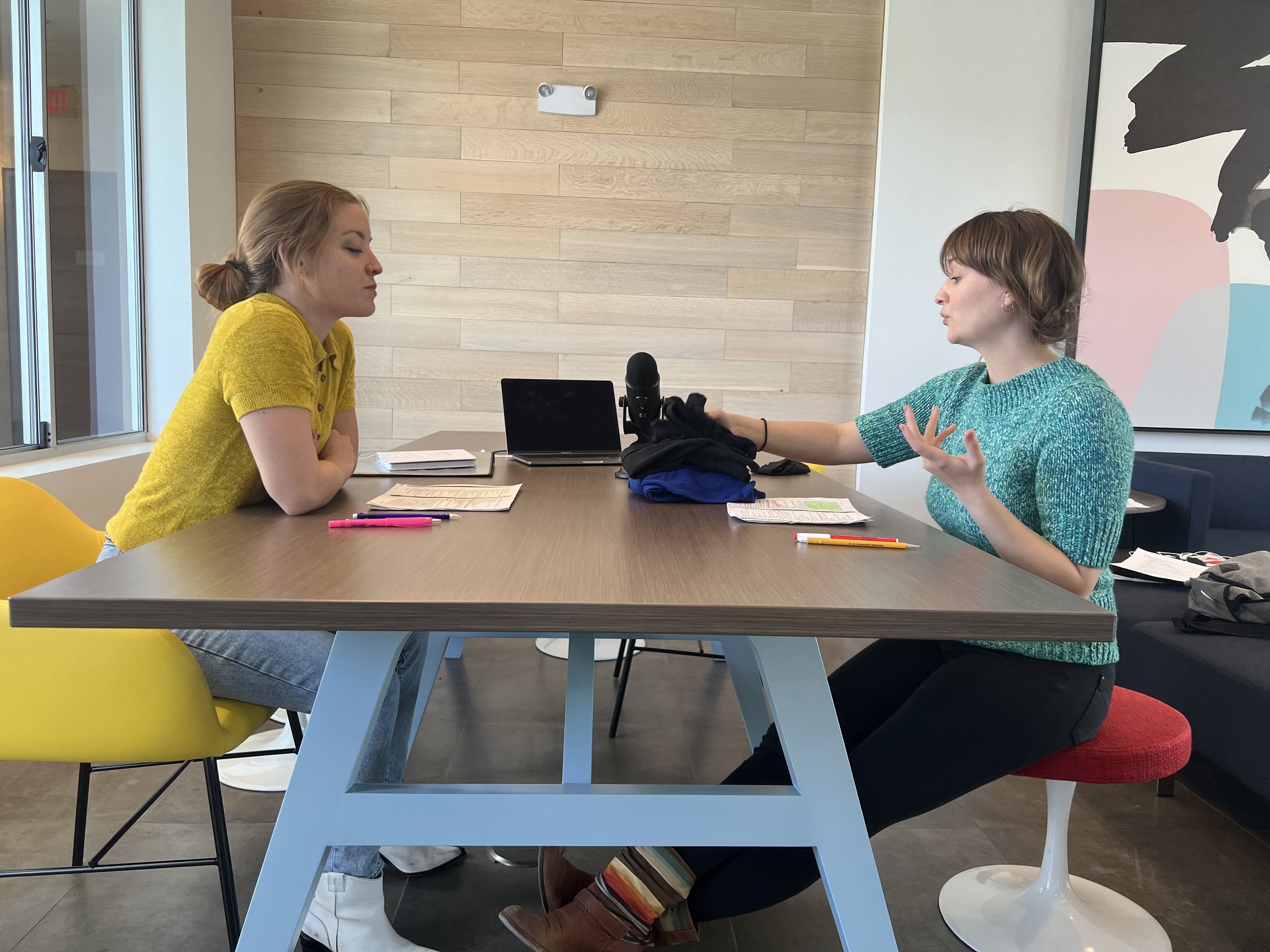
Spike Heels: Script Analysis Project
A tablework rehearsal process recorded in seven episodes. Listen to the scenework grow over time. Take a glimpse into what happens in the rehearsal room as Shae Rodrigez and Andrea Flowers work to discover the action, objectives, and obstacles of Spike Heels by Theresa Rebeck.

Script Analysis Project: Sight Unseen
We want to invite you into a live tablework rehearsal process. Directing the final scene of Sight Unseen by Donald Marguiles, actors Vince Eustace and Andrea Flowers embark on a seven audio episode journey of discovering character objectives, actions, and obstacles. Have a peak at a usually private and more vulnerable part of the playmaking process.

Podcasting the Director’s Role
Chris Canfield and I break down the director’s role from first read to opening night. Facilitated by Ashley Peterson with the Napkin Sketch Chronicles podcast series.

Dodging Traps: Avoiding Pitfalls that Limit Creativity
Our goal with theatre-making is to tell an engaging story that inspires the audience to make change. Making decisions can get the work done, but how can our decisions as directors contribute to making the story more engaging?

Writing Personalized Monologues
The artists at Flat Tire Theatre company got together to pair playwrights with actors, writing custom monologues during this virtual time. After a great discussion of artistic goals, I wrote a short scene for the amazing Tasneem Islam who wanted to play a character that had to choose between living her goals as an artist and meeting the expectations of her parents.
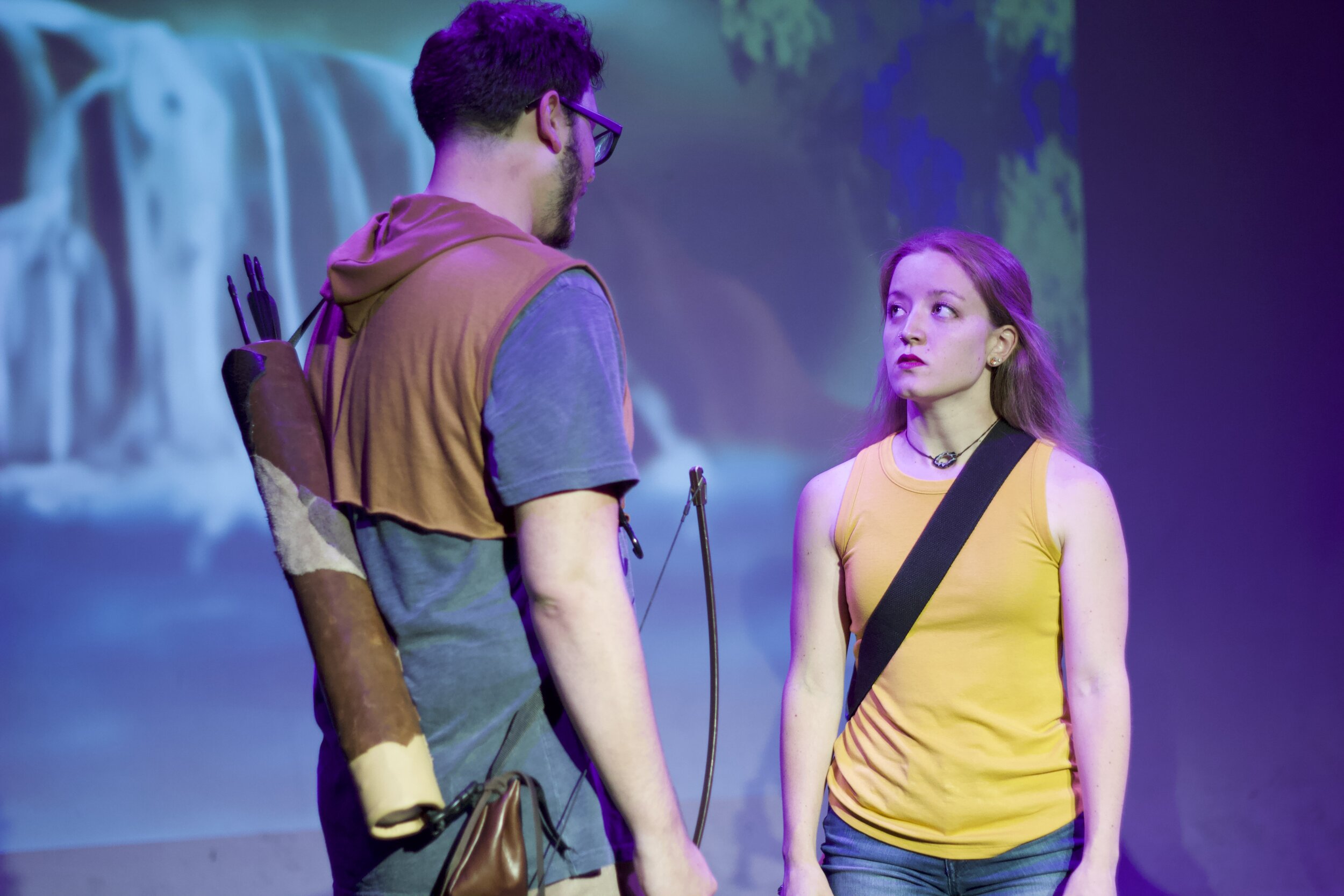
Directing Plays with Magic Systems: Making a Fireball about Character Development
Never at any point do we want to rob the character of their agency, intelligence, and experience by having the magic solve the problem for them.

Sharpening Tools: Writing Exercises
When more projects are in the initial phases of planning and testing, engaging in small exercises with people who inspire me and are fun to work with feeds my need to work with more concrete material.

Diversity, Inclusion, Equity in Rehearsal Rooms
People will not initially trust talks of inclusive rooms. It is not something that is in common practice. We have to build trust with everyone in the room and be willing to make mistakes and show up imperfect as we do it. How can we begin to build trust?
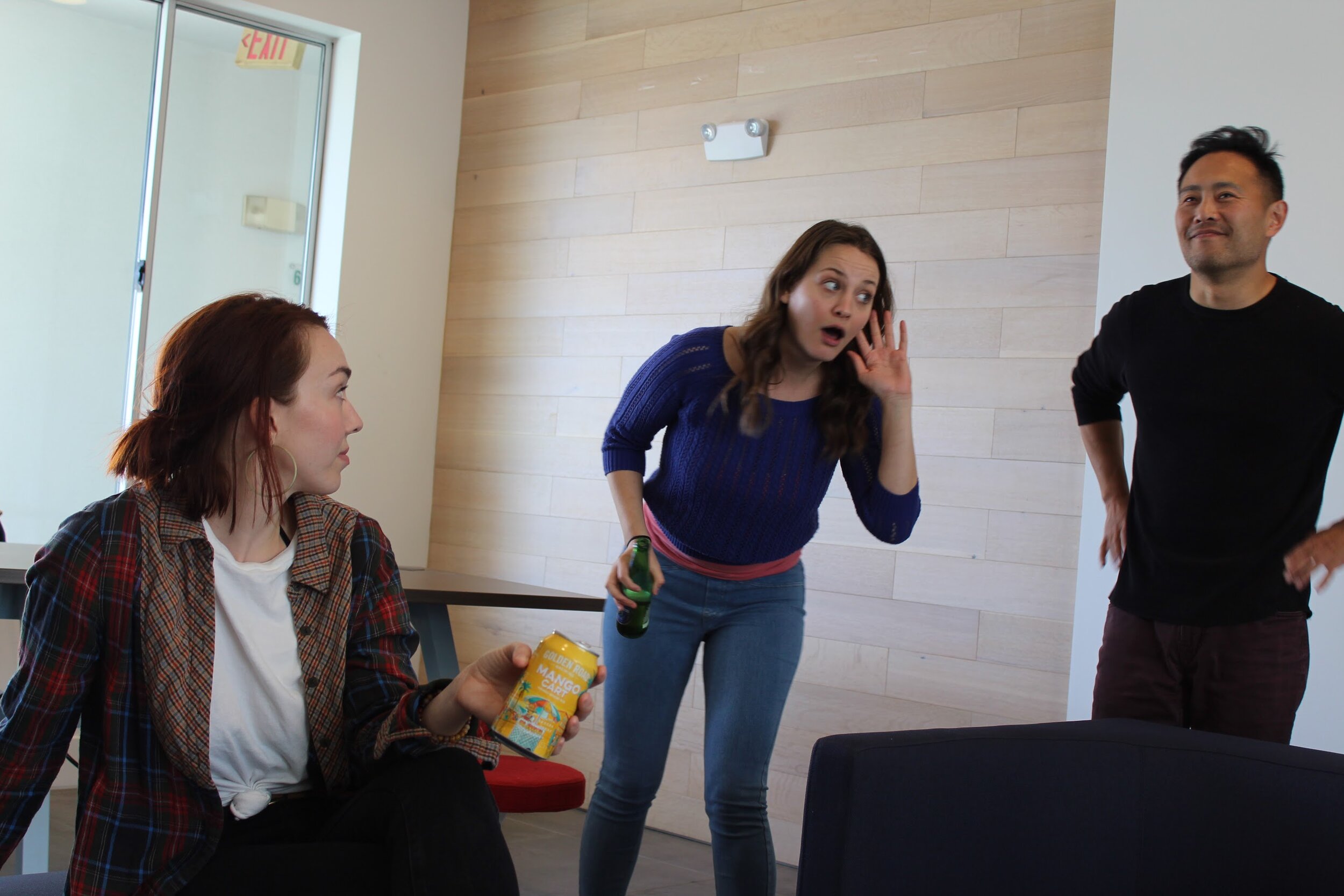
Upgrading the Action: Continuing Creativity During Middle Rehearsals
We then enter the middle rehearsal period with the goal of finding where we can enhance the storytelling. With the structure and framework in place, we then begin to strengthen the play by upgrading the character’s actions in each beat.

Using Our Gifts: Workshopping New Plays
A beautiful phase of a new play process is after a draft is fresh and ready to be shared. Now in the development stage, we as artists need to find ways to test the project out and see what sticks. Workshops become a great nesting ground for gathering artists together for a shorter period of time to enhance the work.
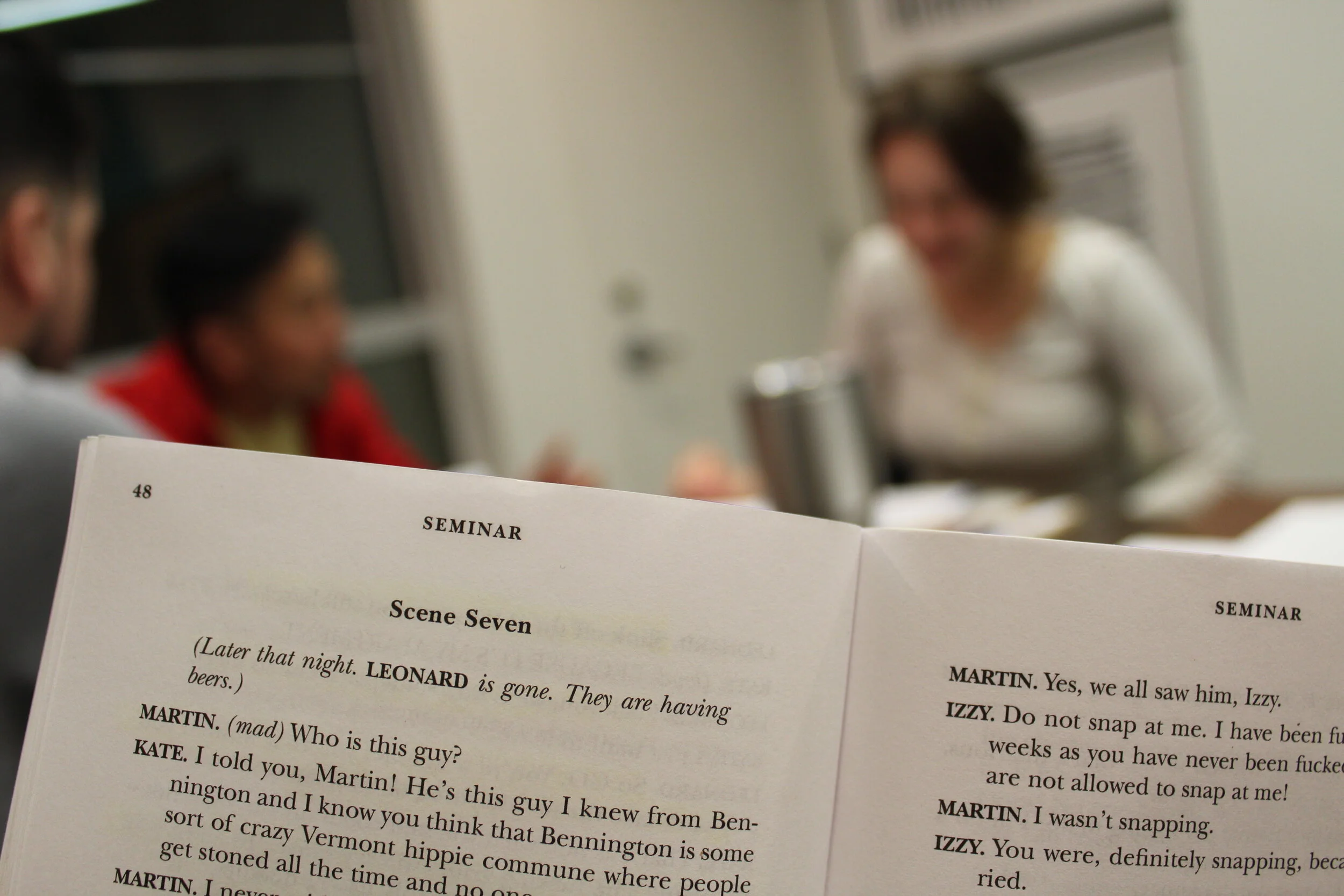
The Character’s Journey: Breaking Down a Scene
The beginning of scene work is an exploratory period for the actors to discover what the character does and the motivations behind why the character does what they do. I work to create an environment where the actors can explore without judgment; championing their creativity as they continue to experiment and test out options towards building the story we want to tell.
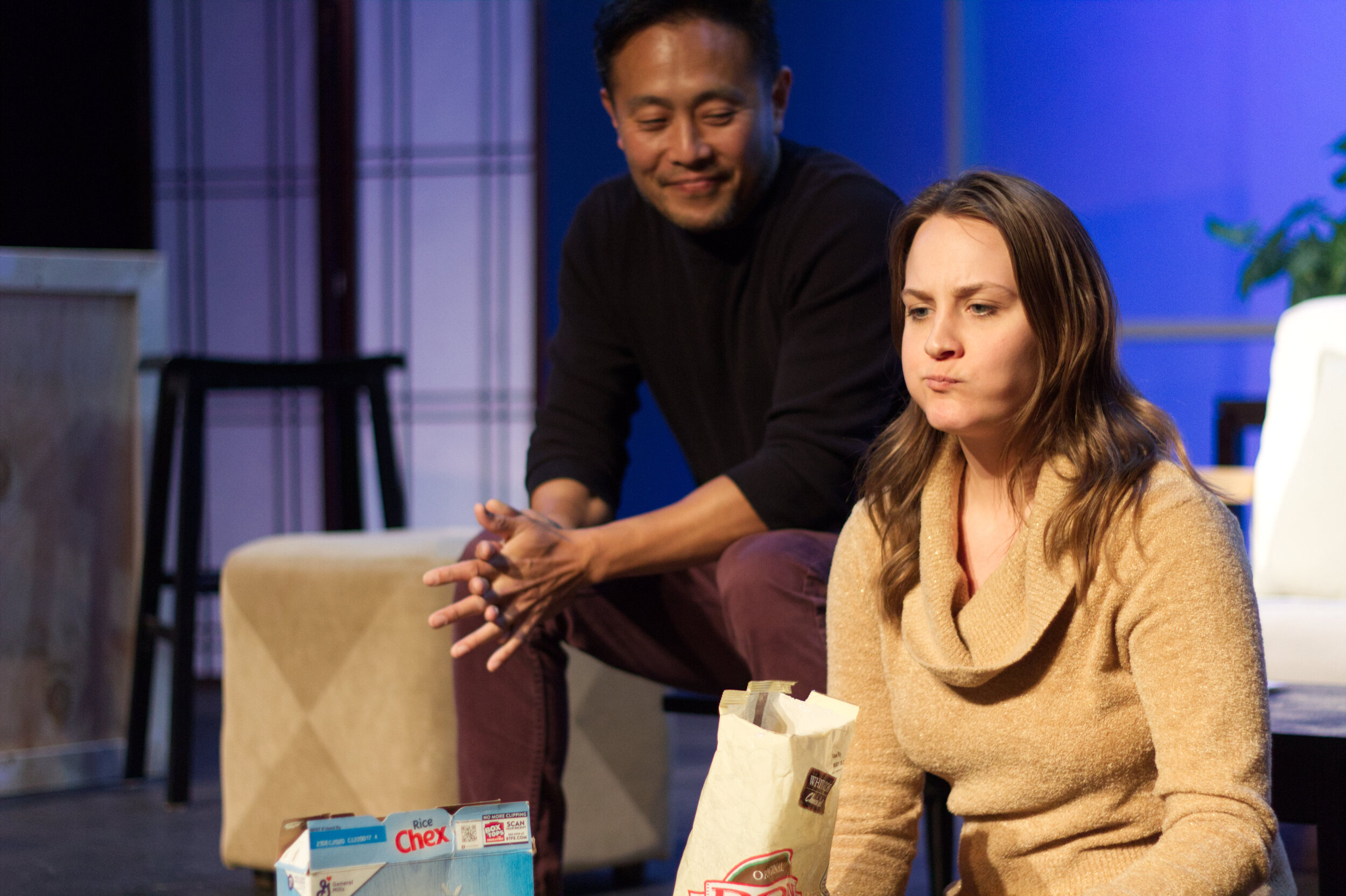
A New Therapy Podcast: How It Connects to Text Analysis
While I’m working, I typically prefer the sound of the human voice — digging into true crime podcasts or rewatching episodes of RuPaul’s Drag Race. I think it boils down to my love for eavesdropping and the thrill of overhearing conversations. I’m on a trend of listening to podcasts about therapy sessions and have found them to be helpful tools for text analysis and encouraging creativity in the rehearsal room.